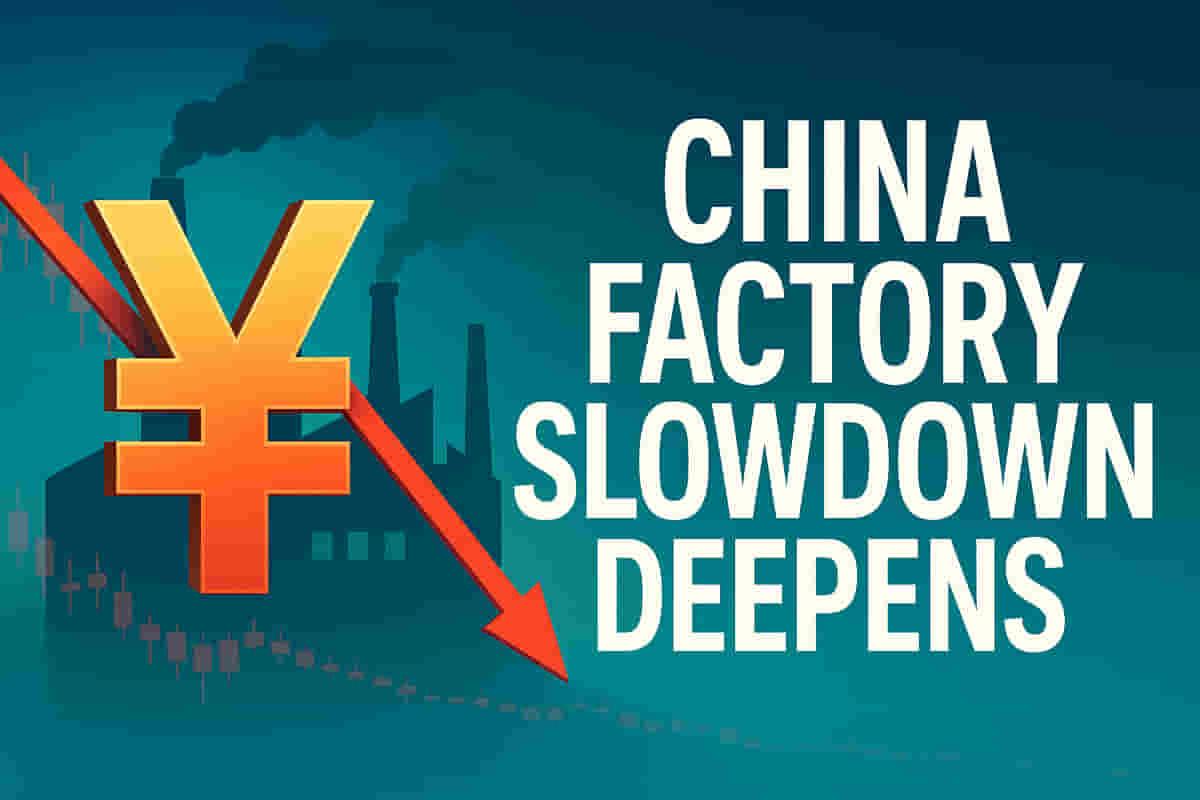China's Factory Activity Shrinks for Seventh Month, Missing Forecasts Amid Calls for Stimulus
Economy
|
31st October 2025, 3:25 AM

▶
Short Description :
Detailed Coverage :
China's official manufacturing Purchasing Managers' Index (PMI) declined to 49.0 in October, down from 49.8 in September and hitting a six-month low. This figure remains below the 50-point mark, which signifies contraction rather than expansion, and also missed the Reuters poll's median forecast of 49.6. This marks the seventh consecutive month that China's factory activity has shrunk, highlighting ongoing economic challenges. The non-manufacturing PMI, which covers services and construction, saw a marginal increase to 50.1 from 50.0, indicating slight growth in those sectors. However, economists point to persistent issues like the slowdown in the property sector as a major drag on domestic demand. Zhiwei Zhang, chief economist at Pinpoint Asset Management, noted that the fiscal policy has not significantly changed to counteract this downward pressure. Manufacturers are struggling with a sustained recovery post-COVID-19, exacerbated by past trade tensions and difficulties finding profitable markets abroad, with some exporters reportedly selling at a loss. While some recent hard data like industrial output showed growth, analysts caution that this may be skewed by large state-owned enterprises. Xu Tianchen from the Economist Intelligence Unit expressed surprise at the PMI drop, anticipating more stimulus. China's third-quarter economic growth slowed to 4.8%, its weakest in a year, though it remains on track to meet its annual target of around 5%. Beijing has pledged to boost domestic consumption, but skepticism remains about the effectiveness of proposed measures, with concerns over whether they will benefit private producers and households or just large firms. Analysts are divided on the necessity of further stimulus this year, with some advocating for accelerated infrastructure investment. Long-term worries persist about rebalancing China's economy, where household consumption lags global averages. **Impact**: This news indicates ongoing economic weakness in China, the world's second-largest economy. A significant slowdown there can reduce global demand for goods and commodities, potentially impacting commodity prices and the export markets for various countries, including India. Supply chain disruptions could also be a concern. The need for stimulus might lead to policies that could influence global trade flows. Rating: 7/10. **Difficult Terms**: * **Purchasing Managers' Index (PMI)**: A survey-based economic indicator that measures the health of the manufacturing and services sectors. A reading above 50 indicates expansion, while a reading below 50 indicates contraction. * **Contraction**: A decrease in economic activity. * **Stimulus**: Measures taken by a government to boost economic growth, such as increasing spending or cutting taxes. * **Domestic Demand**: The total demand for goods and services from within a country's borders. * **Fiscal Stance**: The government's policy regarding taxation and expenditure. * **GDP (Gross Domestic Product)**: The total monetary value of all finished goods and services produced within a country's borders in a specific time period.